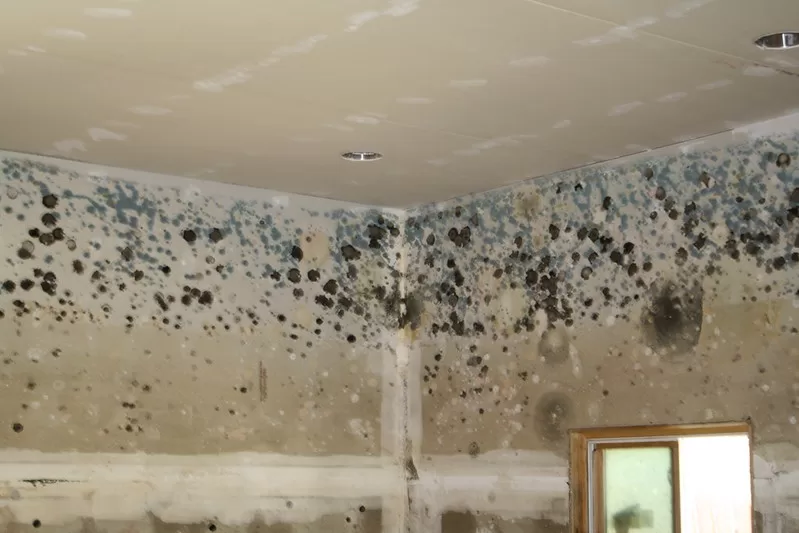Mold often causes a musty odor, which is why you may notice odors like this around your home. Here’s what to look for and how the problem can be fixed.
Large air purifying devices like Triad Aer V3 remove different smells associated with mold and other factors like smoke etc.

When Mold Begins to Form, It Often Emits a Musty or Earthy Smell
Mold has a distinctive smell that is musty, stale, and damp. It lingers in the air for hours after you walk through an area with mold or mildew growing on your clothes, one of its first signs.
Some common varieties give off earthier scents than others but all will make those around them want to avoid it because they know something bad could be lurking just below surface level.
Mold can start to form in as little as 24 hours, so if you notice a musty smell coming from your home within that time frame it’s best for homeowners not only to identify the root cause but also to take steps immediately.
Mold becomes hazardous when its spores are released into our air; this often happens without us knowing because they’re tiny.
The type of mold growth will determine how dangerous these molds may be; some types might make people sick while others just give them stomach aches or headaches until their systems fight back against them.
Read Also:
The Pungent Odors of Mold Can Vary Depending on The Type of Fungus
The range of smells produced by different types of molds is quite wide. For example, black mold often has an odor similar to musty basements or rotted leaves; however, it’s far from being only this type.
In addition, there are numerous other species that can produce unique scents depending on their individual uniqueness; some even smell sweet if they’re toxic enough for human consumption.
Mold can be a very difficult thing to identify because there are so many different kinds of molds and they all produce smells differently. However, an experienced mold removal professional will know what type is present in your home without any problem at all.
Mold Odor Is Usually Very Strong, And the Smell Is Typically Consistent
When some homeowners smell mold, their first thought may be to open a window and hope it goes away.
But even with the windows wide open, there’s no guarantee that you won’t still have an overpowering odor in your home or business later down the line due simply because of all those tiny spores floating through the air waiting for someone else unlucky enough to catch them once again.
When a homeowner is experiencing an overwhelming smell, it can be difficult to find the source of their problem. The longer they take in searching for this unknown odorant and its possible causes without addressing them immediately will only make those problems worse as well.
It’s crucial that you identify what’s causing your issue right away so there aren’t any new locations where mold may grow which requires more time spent cleaning up after itself or even replacing walls/ flooring altogether depending on how bad things got with just one small area being affected initially.
The Air Smells Damp and Stale, Often an Indication of Mold
The problem of mold in your home can’t be fully removed with just one quick fix. Open windows and air fresheners will only mask the scent for a period, but if left unchecked this mask what could become an expensive repair job down the line.
The smell of dampness can be overpowering, but it’s not just your imagination. Molds and mildew thrive in these conditions because they release spores into the air that float around until someone walks nearby or falls down with them.
You’ll often find molds wherever there is plenty going on like a basement where you spend time during naptime as well as bathroom fixtures that have been left moist for extended periods.
Mold Can Smell Like Rotten Wood or Sour, Tangy Alcohol
Mold is often found in damp areas, and its signature scent can be similar to that of rot. It has an earthy smell, not unlike the outdoors but it’s more complex than just dirt. The perfect blend between mold spores and wood provides each individual with their own unique odor.
It depends on how much time they spend hiking or camping outside without wearing deodorant while gardening all day long during the summer months.
Mold has a distinctive smell, but it’s not always easy to tell if you smell mold or just something that smells like flour.
If your home is starting to give off an unpleasant aroma and there isn’t any obvious source for the problem then this could mean one thing-mold might be growing somewhere in the house.
Most molds won’t cause serious health problems as long as they are excessively exposed. However, some people may experience shortness of breath or hives from extremely high levels of exposure so speak with immediately about what appeared shortly after moving into a new place before anything gets worse.
Even If There’s No Smell, Water Damage Could Still Mean Mold
It is important to be aware of the signs that mold may have formed in your home. If you notice any black substance on surfaces or socks coming out from under furniture, then it’s time for professional help.
Mold can cause many health problems because its spores are extremely small, about 1/50th the size of human hair and easily escape detection by simply failing at being invisible as they grow into new droplets all around us.
The most commonly affected areas include attics where humidity levels often exceed 80%. Please note that mold is somewhat different from conventional pests that are found in homes.
You can see Evo Foam Pest Control to check out the type of common pests in homes that are somewhat different from mold and mildew.









